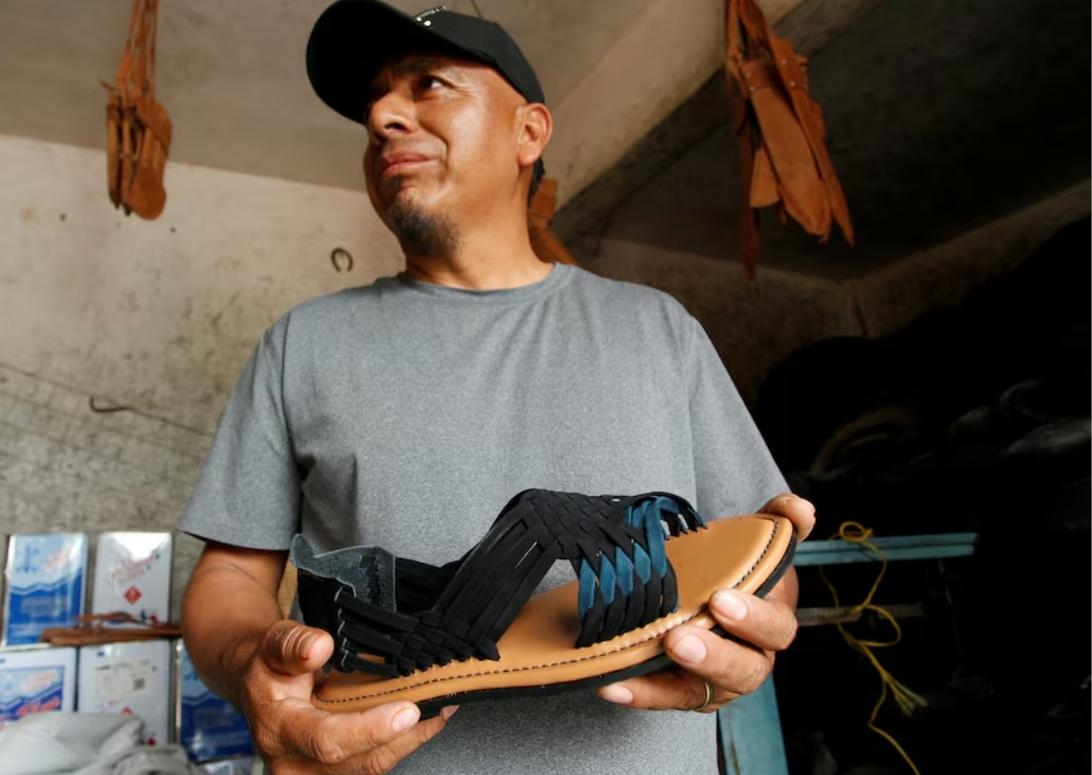VILLA HIDALGO YALALAG, Mexico – Sportswear giant Adidas has found itself at the center of a cultural controversy after unveiling a sandal design strikingly similar to the traditional huaraches worn by the Zapotec community of Villa Hidalgo Yalalag. The backlash prompted the company to issue a rare in-person apology, sending senior executives to the remote town to make amends and promise future collaboration with local artisans.
The issue ignited global debate earlier this month when Adidas, in collaboration with Mexican-American designer Willy Chavarría, released the “Oaxaca Slip-On” — a shoe design that locals argued mirrored their cultural craftsmanship but failed to acknowledge or involve the community in its creation. The uproar was swift, with activists, media outlets, and even Mexico’s President Claudia Sheinbaum condemning the move as blatant cultural appropriation.
In an unusual step for a global brand, Adidas executives, led by Karen Gonzalez, Head of Legal and Compliance in Mexico, arrived in Yalalag to publicly apologize. Addressing a gathering of artisans, Gonzalez stated, “We understand this situation may have caused discomfort, and for that reason, we offer a public apology.” The event, held in the town square, was rich with symbolism — from indigenous music to traditional attire — underlining the depth of the cultural wound caused by the controversy.
Yalalag’s Mayor, Eric Fabian, acknowledged the gesture, saying, “Thank you for keeping your word… Our cultural heritage is something we safeguard very carefully. Yalalag lives from its crafts.”
Beyond the apology, Adidas committed to working directly with the community to ensure future collaborations respect and protect indigenous heritage. The company’s representatives emphasized their willingness to engage artisans in co-creating designs, ensuring the community benefits economically and culturally from their craft being showcased globally.
This incident also sheds light on a growing push by Mexico to protect indigenous intellectual property from exploitation by international brands. Over the years, major fashion houses including Louis Vuitton, Prada, and Carolina Herrera have faced criticism for similar cases of cultural appropriation involving Mexican communities.
Analysts suggest that Adidas’ proactive engagement might mark a turning point in corporate accountability, setting a precedent for how global brands should handle cultural sensitivities in design. However, critics argue that whether this will translate into long-term respect and meaningful partnerships remains to be seen.
For the people of Yalalag, the apology is a step forward but also a reminder of the need for vigilance in protecting their heritage. As global conversations around cultural integrity gain momentum, this episode raises a crucial question — will brands truly embrace ethical collaboration, or will such gestures remain limited to moments of public relations crisis?
This story has been reported by PakTribune. All rights reserved.



